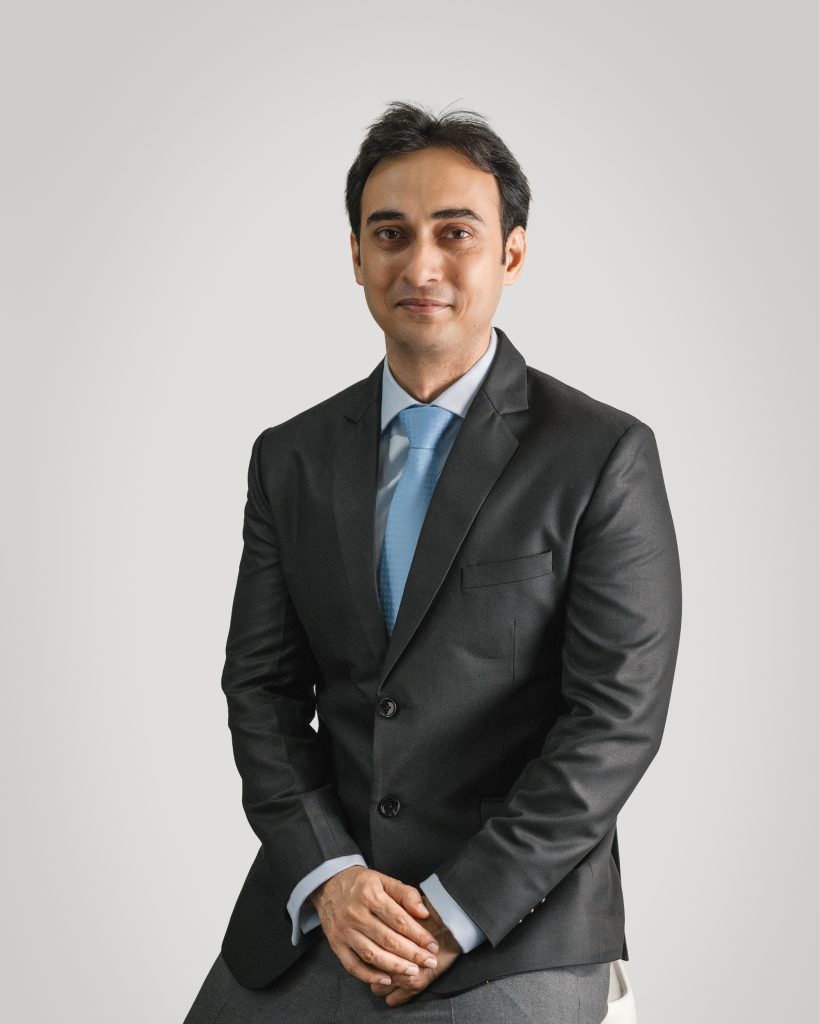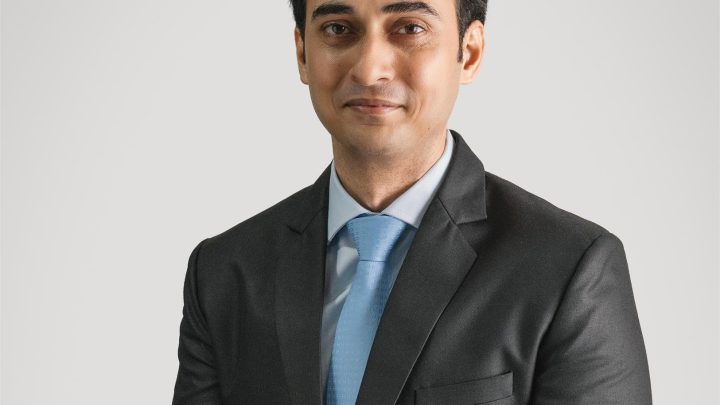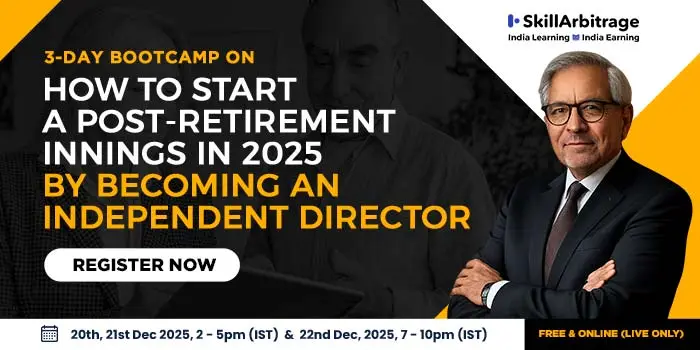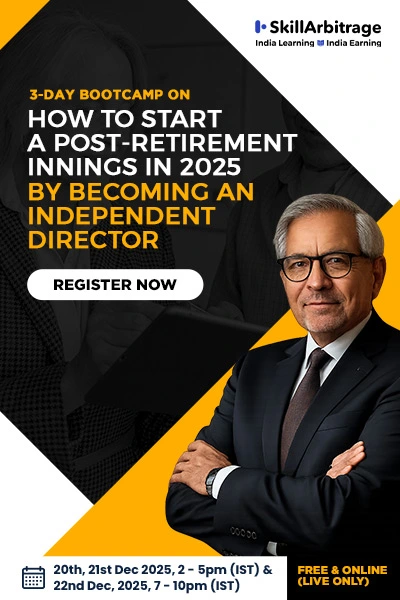AOR
2340
0
0
“Don’t chase money but try to gain as much experience as you can during your initial years into the profession”- Paritosh Anil, Advocate on Record and Partner at AKS Partners
This interview was taken by SuperLawyer Team
Posted on June 10, 2024
This Interview has been published by Pragya Chandni and The SuperLawyer Team

Can you share with us the story of what initially drew you to pursue a career in law, and what motivated you to specialize in criminal, civil, and arbitration disputes?
I did my graduation in English (H) and then wanted to pursue either CA or Law. Ultimately, I was more inclined towards law as the pursuit for justice and a desire to make a positive impact on society is something which can only be achieved in this profession. During the 2nd year of my LLB, I realised that litigation is my calling as I was fascinated with the dynamics of the criminal justice system. Later, during my initial training period, I was fortunate enough to have worked under the guidance of Mr. Ramesh Gupta (Senior Advocate) and those initial years of running around in the corridors of Patiala House Court is what further motivated me to pursue litigation as I was a witness to the countless lives which were touched by my senior daily. The relief on the faces of the clients and their gratitude towards the assistance provided to them by their counsel is what makes it all worthwhile at the end of the day. With passage of time, I ventured into civil and matrimonial matters and then from 2015 onwards Arbitrations as a field started gaining pace in India and a natural progression for me was to start delving into this new field.
As you are aware litigation (specifically criminal and civil litigation) is tough and the initial gestation period is around 5-6 years for any lawyer to start earning a respectable fee. However, if you have the grit and determination to sustain these initial years, then this profession gives you the maximum satisfaction of being a beacon of hope for so many individuals. Additionally, you are constantly learning something new every single day and the learning experience itself keeps you invigorated and makes you a better person and a better professional. This satisfaction of making a difference in someone else’s life by performing my professional duties to the best of my abilities is what motivated me to pursue litigation, and this is my guiding light even today after almost 16 years of being in the profession.
Reflecting on your extensive experience, can you tell us about a particularly challenging case you handled, and what you learned from it?
Well, there have been many memorable and challenging cases which I have dealt with but the one which stands out as being the most challenging of them all would be a CBI case in which allegations of forgery and bribery were levelled against the clients who were builders. The basic allegation was that land acquisition was done based on forged and fabricated sale deeds with the help of officials from tehsildar office. After going through the entire documentary evidence and the purported forged and fabricated sale deeds I managed to identify that the allegation of forgery was prior in time to when my clients had entered into the picture and their sale deeds were based on the previous chain by another person who was not even made an accused in the case whereas the allegations of forgery were of that period. Based on this glaring discrepancy which was highlighted before the Ld. Judge, ultimately my clients were acquitted because of this major flaw in the case put forth by the prosecution. The matter involved meticulous investigation into a lot of documents filed along with the chargesheet and it was all worthwhile in the end. This case taught me to be absolutely thorough with the reading of case documents since a simple date on a document could be the difference between a win or a loss for the client.
You’ve represented clients before some of the highest courts in India, including the Supreme Court and the Delhi High Court. How do you prepare for such high-stakes cases, and what does a typical day look like when you’re gearing up for a major court appearance?
Well, for any litigation lawyer a typical day starts at around 7.30-8am in the morning when you start preparing for your court hearing and post court timings it is usually conferences and meetings till later in the evening. Then by the end of the day you are preparing for the cases which are listed on the next day so to sum it up you are working round the clock as a litigation lawyer and that’s what a typical day looks like for me as well. This pressure has only increased since my foray into a firm as now I am also responsible for the work which my entire team is doing, and I must keep them motivated as well to put in their best efforts in all the tasks which are assigned to them.
There are a few days of temporary respite when there is a long weekend coming up but then that also must be utilised for the purpose of business development meetings. When a high stakes matter is involved then obviously your focus shifts completely for the preparation of that case and rest of the things take a backseat. The team working under me also prioritises on preparation of important matters whenever the need arises, and rest of the work is reallocated accordingly.
Your profile mentions your involvement in both substantive and procedural law. Can you explain how you balance these two aspects in your practice and why both are crucial for successful legal representation?
From my experience I can confidently state that procedural law should be the focus for any fresh graduate who wants to pursue litigation. The learnings from your formative years into the professional when you are either interning or working under a senior, are what will decide on how professionally sound you will be in the future. Substantive law can only provide you with broad guidelines in which you have to move but procedural law is what will determine how you will be able to succeed in a particular case.
I was fortunate enough to have worked under seniors who were doing extremely good trial court work and training under their guidance helped me in honing my procedural law skills. For any litigation aspirant practical knowledge of court craft including the art of cross examination of witnesses is the most important aspect of his learning and growth. Once you are confident in the procedural aspects, you automatically gain a better understanding of the substantive aspect of law as then reading through the relevant provisions of any act or rules becomes easier for you. Based on the knowledge and advice imparted to me by my seniors, I had also focused on the procedural and practical aspects of court craft during the formative years of my practice and that is what has helped in becoming a better professional. I keep myself abreast with any new developments in law by reading recent judgments of higher courts, books and commentaries of different fields of law and online articles on topics relating to my field of work. Reading is something which is imperative for any legal professional and that helps you in maintaining the balance between substantive law and procedural law.
Public speaking and interaction management with strategic clients and senior counsels are highlighted as your skills. How have these skills contributed to your success in the legal field?
From my law college days, I used to participate in moot court competitions which helped me in getting over stage fright since I had always been an introvert during my school days. I think doing my graduation in English language also helped me in becoming more confident while interacting in public. Client interaction is something which you get better at with experience and the same holds true for me as well. With time I got better at understanding the needs and requirements of clients since no two clients are the same and you must deal with each client accordingly. Being a good listener is an important skill in any lawyer’s repertoire as clients want a personalised experience where they feel comfortable discussing all their doubts and apprehensions with their lawyer. Ethics and integrity are two other aspects which are non-negotiable in my practice, and I believe that has helped me in retaining many of my clients as clients also appreciate honesty and sound advice from their lawyer.
I have briefed many seniors during my career and share an extremely cordial and respectful relationship with them. Briefing seniors is an important learning experience as watching them deal with a matter through their own vast experience gives you fresh insight and perspective on how to deal with a particular issue or case.
You’ve worked on cases involving the Indian Penal Code, Civil Procedure Code, and numerous other acts. Which legal area do you find the most complex and why?
All cases are challenging but for me particularly civil matters are more technical in nature and require thorough understanding of the Code and mere procedural defects can lead to unwarranted outcomes. Other than civil matters, cases involving IBC and SFIO are also technical in nature, and these are evolving fields, so they also offer some challenge and excitement due to complexities involved in interpretation of the statute and relevant rules. But to be honest, complexity is what keeps you on your toes and makes you a better professional as the need to learn and evolve constantly is permanent in this profession.
In your current role as Partner (Litigation) at AKS Partners, what are some of the significant trends or changes in arbitration and litigation that you’ve observed, and how do you see the field evolving in the next few years?
This is my first stint in a law firm so transitioning from an independent practitioner to a partner has been an interesting experience. I am thankful to my Managing Partner Mr. Sonal Kumar Singh for reposing his faith in me and for his constant help and guidance. This has been an extremely important learning curve in my professional journey.
Now to answer your specific question, commercial suits and arbitration have taken precedence over traditional civil litigation since they offer quicker resolution for commercial clients. With the recent amendments in both Commercial Courts Act and Arbitration & Conciliation Act, the lawmakers of the Country have tried to resolve some of the procedural aspects which were causing delays in the trial thereby making the process faster and more efficient.
One of the main reasons for me to join the firm was to gain more relevant experience in International Commercial Arbitration for myself and to enhance the ‘white collar crime’ practice of the firm. AKS Partners is renowned for its expansive arbitration practice and in recent years Government is also focusing on making India a major hub for conducting International Arbitrations. I see a tectonic shift in the Arbitration landscape of the Country in the near future with establishment of major Arbitration Centres like Delhi International Arbitration Centre as well as establishment of Arbitration Bar of India.
Finally, what advice would you give to fresh law graduates who are just starting their careers and aspiring to achieve success in the diverse areas of law that you have mastered?
Try to do as many internships as possible in order to gain experience in all fields of law whether it is corporate or litigation as that will help you in deciding which field attracts you the most. Clarity on this aspect is crucial for your growth as your initial years of training will determine your future in your chosen field of law.
If litigation is your chosen path, then be patient during the initial years. Don’t chase money but try to gain as much experience as you can during your initial years into the profession. Try gaining maximum exposure in trial courts for at least 3-4 years as that is where you will learn the procedural aspects of litigation including the art of cross examination of witnesses which I believe is imperative for any litigation lawyer. To all young professionals my most important advice will be to be thorough with the Evidence Act as that is the bread and butter for any litigation lawyer.
Finally, don’t be afraid of making mistakes as they will be your greatest teachers in your professional journey. Be faithful to your craft and never compromise on your ethics and professionalism.
Get in touch with Paritosh Anil-







No comments yet
Be the first to share your thoughts about this interview.